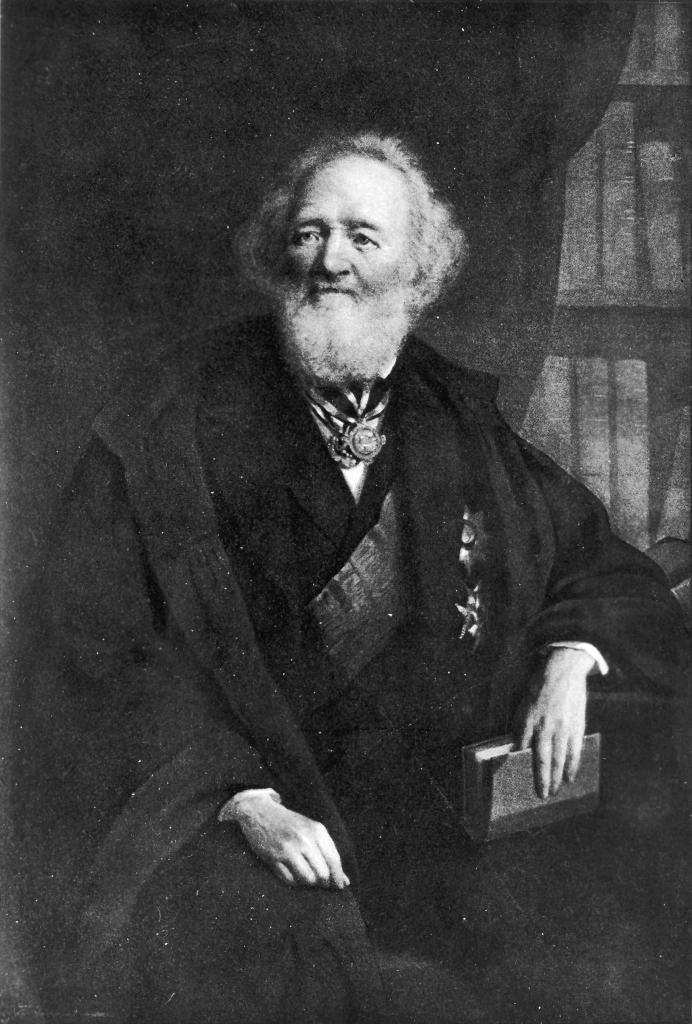Welcome to Assassin’s Creed Week presented by Play the Past, where for a whole week, Play the Past will push content on the most popular historical video game series ever. Part I introduced the Week and asked why Assassin’s Creed mattered, Part II examined slavery and native relations in the series and Part III explored the portrayal of historical women. Part IV will look at the notion of Grand Narratives and how Assassin’s Creed uses them when making their story.
In the name of liberty, I will fight the enemy, regardless of their alligence. While men of courage write history of this day, the future of our land depends on those who are truly free. – Connor Kenway
The writing of history has changed drastically over the past few hundred years. Today, writing history heavily involves consultation of primary sources but this was not always the case. Leopold von Ranke, a 19th century German historian was one of the first to push for reliance on primary source material and is one of the most important figures in the art of writing history. He was an advocate for another aspect in contemporary history writing, grand narratives. When writing history, a grand narrative provides an overarching idea behind your interpretation of the history. This principle is in regards to writing history but it can also be applied to recreating history.

As I mentioned in Part I, Christopher Sawula wrote a post on Assassin’s Creed‘s historical interpretations and specifically bashed Assassin’s Creed III and Black Flag for choosing a specific interpretation of history and presenting it as fact. I find his conclusion unsettling and in this post I hope to elaborate on why it is okay for Assassin’s Creed to chose certain interpretations of history.
The overarching story of Assassin’s Creed is crucial to understanding the developers choice of narrative in their history. In the Assassin’s Creed universe, two groups, the Templars and the Assassins have been at war for thousands of years. The Templars aspire for a perfect world that can only be achieved through order and control. The Assassins fight to maintain the public’s free will. These two sides are caught in an eternal conflict and it defines the grand narrative of the games: a fight for free will over those who would seek to control.
In the first Assassin’s Creed, Altaïr kills slavers, book burners, false rulers, and other individuals set on controlling the Holy Land. Ezio takes on the Borgia who desire power at the expense of the good of the population in Assassin’s Creed II and Brotherhood. Connor, in Assassin’s Creed III, takes on the Colonial Rite of the Templars Order who have allied themselves with the British military during the American Revolution. In Assassin’s Creed IV: Black Flag, Edward battles both the British in order to maintain the Pirate Confederacy and the Templars to thwart an evil plot. Each of these storylines is dictated by the overarching theme of fighting for free will.

As Sawula is quick to point out in his article, Black Flag‘s story is linked to the work of Marcus Rediker and Jesse Lemish who argued that pirates developed definitions of independence and freedom from their battles with the British. However, Sawula then points out that other research reaches different conclusions and that Black Flag doesn’t do a good enough job of expressing these views and that the game chooses one interpretation to portray. Two problems arise with this. For one, not every pirate in Black Flag becomes a pirate in a quest for political liberty. For example, Stede Bonnet’s path to becoming a pirate involves more personal desire for adventure and involves almost no political intervention. Secondly, the theme that is common to all Assassin’s Creed games is the fight for independence and free will, so it makes complete sense that they would chose it as their narrative for this game.
While I understand Sawula’s qualms with the advertising of Assassin’s Creed, which increasingly uses ads that misrepresent the story of the games, I cannot agree that their choice of narrative reflects poorly on them especially when the scholars that they take it from (Rediker and Lemish for Black Flag) have respectable work. The purpose of a grand narrative is to provide an answer to why the events of the past occurred. For the purpose of the Assassin’s Creed series’ story, their narrative involves fighting for free will and so it is reflected in the characters’ drives.
The Assassin’s Creed series has chosen a grand narrative to apply to their games. This narrative dictates their decisions in the interpretation of history they will employ and directly influences how characters (historical or not) behave. So long as these interpretations do not completely disregard the sources from which they are drawing from, then it is completely within the developers right to utilize them. As previously stated, Ubisoft’s commercials and advertisements have recently gotten into a bad habit of inaccurately portraying the story of that game, such as Assassin’s Creed III focusing solely on the evil British even though there are Templars that are Colonist and Loyalist. However, within the games themselves, the grand narratives that Ubisoft employs only strength the message behind the story and so should be more than welcome to include it as such.
The final post for Assassin’s Creed Week will discuss what it means when Assassin’s Creed is wrong.

Grand narratives are a feature of XIXth century – early XX century historiography, not contemporary historiography 😀 .
Also, in my opinion the ‘grand narratives’ employed in the games are influenced more by conspiracy theories and historical clichés than historical research. One example is the historical aberration that is the “byzantine templars” that appear in Assassin’s creed revelations.